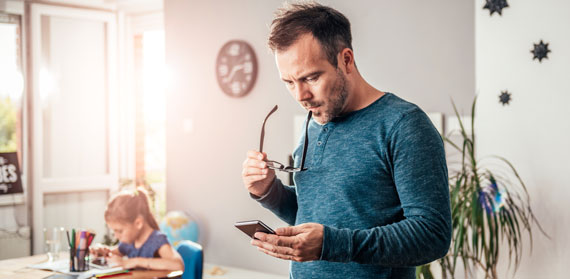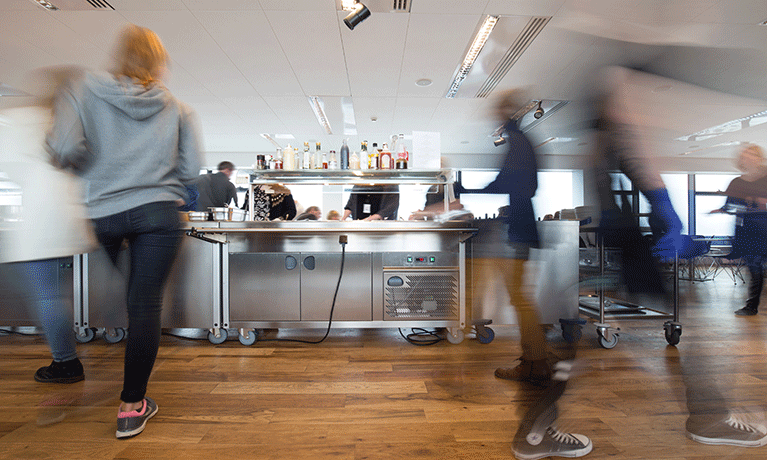Guest post by Alison Martin
In modern lives dominated by 24/7 technology, it can be hard to find a work-life balance – especially for those constantly checking their office email late at night during family days out or even while on a summer holiday abroad.
But the solution for frazzled workaholics may lie with a Coventry University academic, and postgraduate psychology students who are working to try to find solutions for those people who never let go of their mobile phones.
Dr Christine Grant’s studies on work-life balance and technology, relate to several of the University’s postgraduate programmes. Especially the Work and Well-being module, which you can read more about on the following course pages:
MSc Business & Organisational Psychology
MSc Occupational Psychology
She was inspired to study Occupational Psychology when she faced burnout after years of balancing a London commute, long working hours with family life. She completed an MSc and PhD, and continued to research the subject actively – but her focus has shifted over time as society’s relationship with technology has changed.
“Initially I looked at technology as a work enabler,” she said.
“For me, it was a big help. It was a positive thing for me as it enabled me to work from home when necessary when I had a young child. I decided to look at work-life balance issues, and how using technology people can work better from home.
But we have gone full circle. We were on the cusp of technology, but now we can’t leave it alone. It was an enabler – but now we need help managing it. We have to have some boundaries.”
After initially researching how technology can help people manage in business, Dr Grant’s research has shifted to look at how people need to manage technology in what is described as a ‘switched-on culture’.
For those who wish to study themes such as business psychology, organisational behaviours and occupational psychology during their postgraduate study. The work-life balance and influence of technology on people’s well-being may be one area they end up exploring.
According to Dr Grant, there’s a key starting point to help people combat the negative impact of technology.
“The first step for people is to be self-aware. Once you are aware, then you can make the changes. You need to look at your own boundaries, then manage it.”
That self-awareness might include noting how many hours you spend on your mobile phone or identifying times when you check it out of habit rather than necessity. But the final answer to tackling these issues will not be the same for everyone, warns Dr. Grant.
“Individuals are different. People have their own style of working and so one solution doesn’t fit everybody.”
Dr Grant developed self-management strategies as part of her ‘ework-life assessment tool’, which measures how remote working affects employees’ effectiveness and well-being.
After an employee completes the tool and undergoes a consultation, their employer can then choose from a series of strategies to try to help the worker. After a while, the employee then completes the tool for a second time. The scores are compared to show how the employees’ effectiveness and well-being have been improved by the different strategies – but also if there are any areas which still need attention.
Another one of Dr Grant’s current studies, which she is working on with Coventry University’s Centre for Research in Psychology, Behaviour and Achievement, is titled ‘Always on the Mobile? A social cognitive approach to employees’ well-being.’
The research acknowledges the negative impact on well-being that increased work-related use of mobile technology beyond normal working hours and compulsive use of the internet can have.
It uses surveys to investigate ways to identify workers at greater risk of constant ‘work activation’ so that guidelines can be created for training and further strategies can be produced to help both employees and employers.
Dr Grant’s view is that it is often about taking ‘everything in moderation’ and not necessarily about a radical digital detox. Locking your mobile phone in a drawer for a weekend, might just delay the reliance on it and not resolve the dependency issue.
She emphasises the importance in problems being identified and solutions being created on an individual, managerial and company level.
She added: “We all have the ‘right to disconnect’, but it is important to work with individuals and organisations to find meaningful and appropriate solutions that will work for them.”
And that’s something those with a background in occupational, business and organisational psychology can help with.
It’s also a topic that Coventry University’s students and researchers will continue to look at. They hope that they can make a difference in the lives of those employees who can never escape their office life.
And maybe make a difference in their own lives also.




Comments are disabled